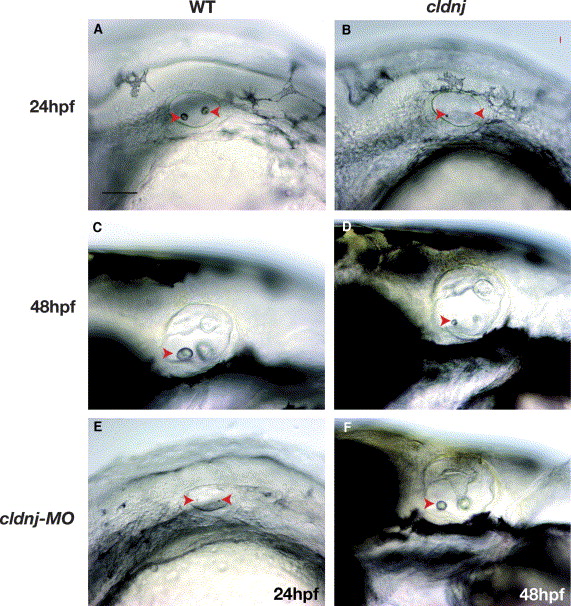Fig. 1 cldnj mutant embryos have reduced otoliths. All images are lateral views of the zebrafish body at the level of the otic vesicle, with the head to the left and the tail to the right. (A–D) Photos of wildtype and mutant ears in the first 2 days of development. (A) 24 hpf lateral view of the zebrafish wildtype ear. Otoliths marked with red arrowheads. (B) 24 hpf lateral view of a cldnj mutant ear. Red arrowheads mark otoliths. (C) Wildtype ear, lateral view at 48 hpf. Red arrowhead marks otolith. (D) cldnj mutant ear, lateral view at 48 hpf. Red arrowhead marks otolith. (E,F) Morpholino phenocopy of cldnj mutation. At 24 hpf cldnj-MO is identical to the mutant phenotype, at 48 h the otoliths in the morpholino injected embryos is intermediate between the mutant and wildtype otolith size. Scale bar=100 μm.
Reprinted from Mechanisms of Development, 122(7-8), Hardison, A.L., Lichten, L., Banerjee-Basu, S., Becker, T.S., and Burgess, S.M., The zebrafish gene claudinj is essential for normal ear function and important for the formation of the otoliths, 949-958, Copyright (2005) with permission from Elsevier. Full text @ Mech. Dev.

